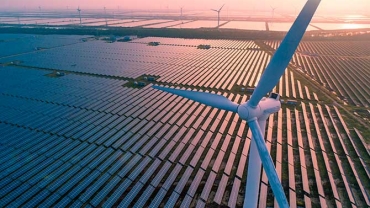
Expectations of disruption from the blockchain are high
Expectations of disruption for energy sector from blockchain are high
Blockchain is identified as one of the most critical uncertainties within the digitalisation elements and is perceived by energy leaders globally to be an issue of both relatively high impact and uncertainty. Blockchain has the potential to change the way we arrange, record and verify transactions, with the underlying model shifting away from a centralised structure (exchanges, trading platforms, energy companies) towards decentralised systems (end customers, energy consumers interacting directly)
The energy sector is seen as one of the industries where blockchain could have the biggest transformative and disruptive impact. But there are still a number of uncertainties in the way of blockchain which still could limit or even stall its growth due to a combination of technological, regulatory and other practical challenges.
Among the big questions surrounding blockchain are: Will its early potential translate into robust and reliable practical applications? How sure can we be that its promise of greater cybersecurity will be fulfilled and that it won’t introduce new, possibly bigger risks? Will industry-wide protocols and standards be needed before blockchain can become truly industry-wide and transformative rather than niche and fragmented? How far away is widespread deployment of blockchain in the energy sector?

Related content


North Sea has gigantic potential
The North Sea is to play a crucial role in the energy transition facing North-West Europe. If public authorities and businesses work together closely, between €...

Blockchain – an opportunity for energy producers and consumers?
Born as a niche product on the fringes of the market, blockchain has for some time now been garnering the attention of experts in various industries, and has...
Contact us

Global Leader, P&U and EU&R, Partner, PwC Netherlands
Tel: +31 (0)65 160 91 78















